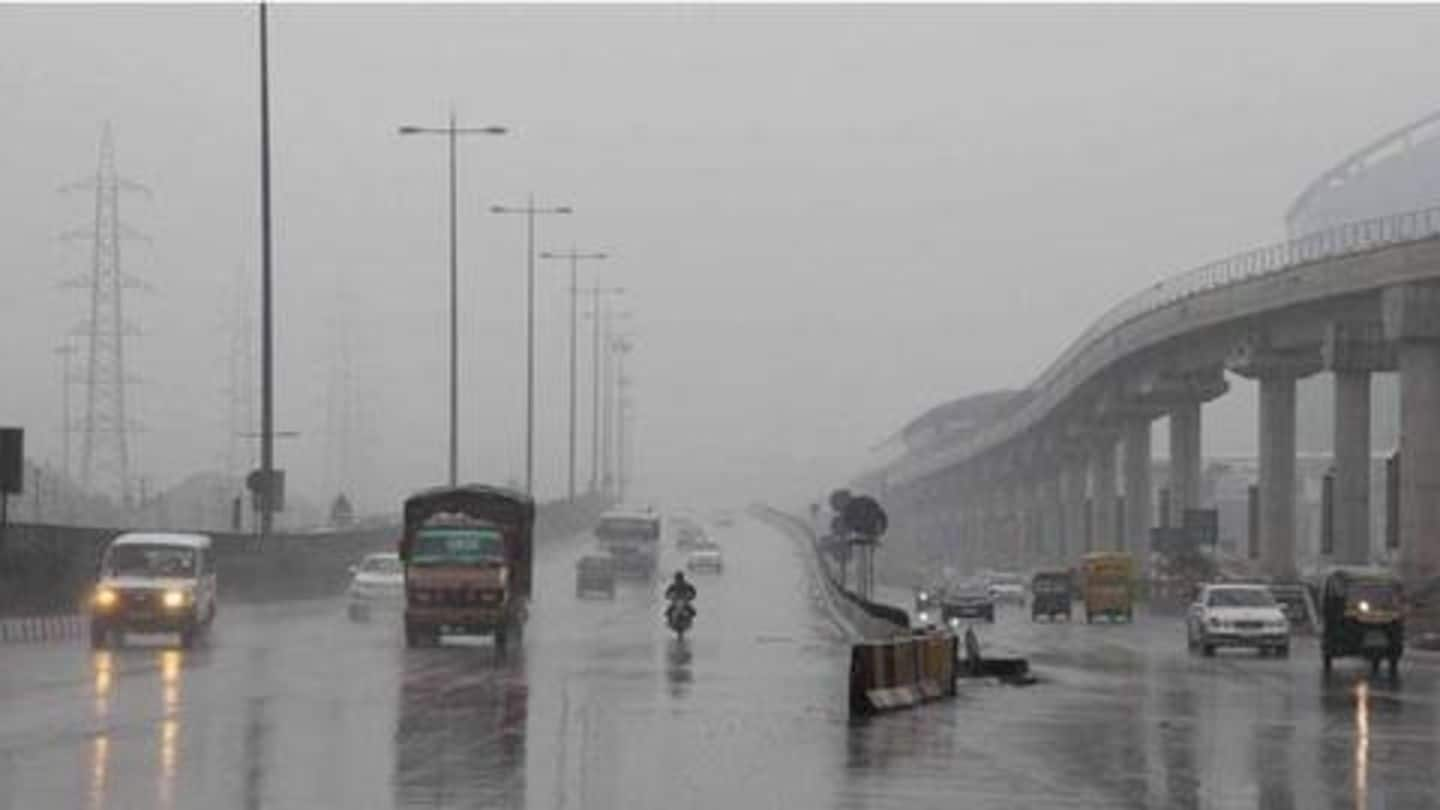
Delhi's air improves after rainfall but remains 'very poor'
What's the story
Delhi recorded its lowest pollution levels this year today after rains washed away the pollutants and cleansed the air, but the air quality still remained in the very poor category, the authorities said.
According to the Central Pollution Control Board (CPCB) data, the overall Air Quality Index (AQI) in the city reached 316, which was in the very poor category.
Information
Faridabad, Gurugram and Noida also recorded 'very poor' air quality
As many as 31 areas in the national capital recorded a very poor air quality, while two areas registered a poor quality air, the CPCB said. Ghaziabad, Faridabad, Gurugram, and Noida in the National Capital Region also recorded a very poor air quality, it added.
Relief
The air quality had been 'severe' for past two weeks
Delhi's air quality had improved significantly yesterday after rains washed away the pollutants and cleansed the air.
The air quality in the national capital has been oscillating between the upper range of very poor and severe categories for the past two weeks.
This was the first time that the air quality was recorded in the lower range of the very poor category, said CPCB.
Data
The national capital recorded PM2.5 level at 160
The overall PM2.5 level (fine particulate matter in the air with a diameter less than 2.5 micrometers) was recorded at 160 in Delhi, while the PM10 level was at 243, said CPCB.
An AQI between 100 and 200 comes under the moderate category, 201 and 300 is considered poor, 301 and 400 very poor, while an AQI between 401 and 500 is severe.
Information
Saturday's rainfall was enough to improve the AQI, said SAFAR
The Center-run System of Air Quality and Weather Forecasting (SAFAR) said the overall air quality over Delhi was very poor. "Saturday's rainfall, along with sufficient wind speed, was enough to wash away air pollutants to an extent and improve the AQI," it said.
Forecast
Air quality likely to improve further, faster during daytime: SAFAR
"The air quality is likely to improve further, much faster during the day, as a moderate surface wind speed is positively working to disperse pollutants, which is the key factor now to keep pollution in check under cool and foggy weather conditions," the SAFAR said.
However, it also noted that the respite was not expected to last for more than two days.
Information
AQI will start increasing gradually from Tuesday, forecasts SAFAR
The respite won't last long as the relative humidity was very high and temperatures were likely to drop further, which would force the boundary layer to come down and hold the pollutants near the surface. SAFAR added the AQI will start increasing gradually from Tuesday.